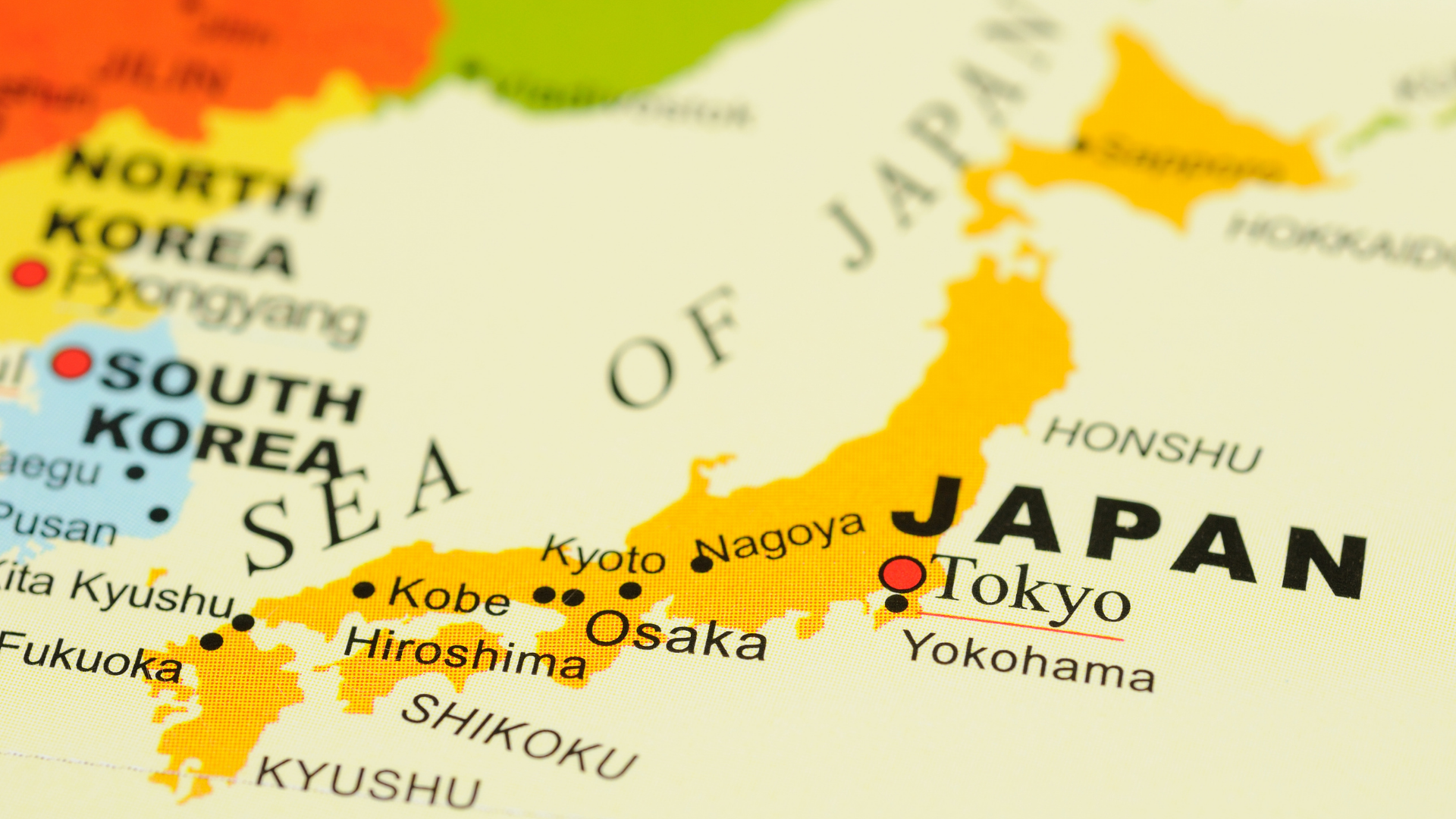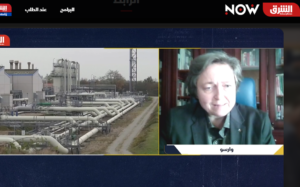
Russia’s invasion of Ukraine and the return of brutal aggression as a means of border changing means rejecting of the global order based on international law. As a consequence, the security architecture is changing not only in Europe but also in the Indo-Pacific. For Japan, the war in Ukraine – and above all an alliance between Russia and China – necessitates a redefinition of its attitude to security and defense, which are limited by the framework of the pacifist constitution of 1947. In the face of growing challenges, Tokyo will dynamically increase its defense budget and strengthen its partnership with Washington with which it has a defensive alliance as well as with regional pacts such as AUKUS – the Australia-UK-US partnership.
The end of a delusion: “revolution” in Tokyo-Moscow relations
In 2014, when the West imposed sanctions on Russia due to its illegal annexation of Crimea, Japan joined them carefully. It was the time of Shinzo Abe’s second term in office and Tokyo was hoping for a real solution to the problem of Northern Territories, i.e. the Kuril Islands, captured by the USSR in the last days of World War II. The case of the disputed islands prevents the signing of a peace treaty between the two parties. Prime Minister Abe sought to settle these difficult issues, so the Japanese security strategy announced in 2013 did not treat Moscow as a threat but as a partner with whom Tokyo can work together for peace and stability on the international arena. China was considered a real challenge. After Xi Jinping came to power in 2012, Beijing began its expansion in the South China Sea and in 2013 announced an ADIZ – air defense identification zone, including the Japanese Senkaku islands. In addition, the security strategy listed North Korea as a threat with its nuclear and ballistic missile development program.
Shinzo Abe met with Putin 27 times and those summits brought Japanese investments in energy projects in Russia, including Sakhalin, where companies such as Mitsubishi and Mitsui & Co. and in the Arctic LNG 2. However, efforts by the Abe administration did not bring Japan any closer to Russian concessions over the Kuril Islands. It is significant that while Shinzo Abe visited Moscow 11 times, Russian President Vladimir Putin visited Tokyo only twice. Meanwhile, Russia benefited from Japanese investments, which demonstrated more and more a one-sided nature of the rapprochement between the two countries.
Russia’s invasion of Ukraine caused a “political upheaval” in relations between Tokyo and Moscow. In a gesture of solidarity with Ukraine and with its Western allies, the government of Fumio Kishida not only did not hesitate to impose sanctions on Russian and Belarusian banks – including the Russian central bank, and on over 100 oligarchs and officials associated with the Kremlin and the government in Minsk, but he also made an unprecedented decision to supply Ukraine with “non-lethal” military equipment. Japanese constitution does not allow it to send weapons to armed conflict zones. In addition, the President of Ukraine – Volodymyr Zelensky was invited to speak (via video-link) in the Japanese Diet. What was remarkable, Japan – traditionally skeptical towards migrants – expressed its readiness to accept refugees from Ukraine and assist them in settling and finding jobs in the country. The authorities in Tokyo did not stop there: they banned exports to Russia of luxury goods, semiconductors, communication equipment, sensors and radars, as well as 26 types of other technologies. In terms of trade, it has also been announced that Russia would lose its Most Favored Nation (MFN) status, which may lead to higher import duties. On the other hand, however, the Japanese government has shown restrain when it comes to possible withdrawal from gas and oil projects in Sakhalin and the Arctic, because they secure affordable energy supplies and, moreover, it would probably make China to replace Japanese companies. A similar situation had occurred in the past with Japan’s energy investments in Iran. However, both Tokyo and Paris decided to suspend further investments in the Russian Arctic LNG 2 project.
Japan’s sanctions against Russia met an immediate reaction from Moscow. On March 7, Japan, along with the European Union member states, as well as South Korea and Australia, among others, was entered on a list of “unfriendly countries“. For the Japanese, the conflict in Europe also means an end to its delusion regarding possible “joint administration” of the Kuril Islands by Moscow and Tokyo or getting them back. A clear signal in this respect is the return of traditional Japanese rhetoric. After the war in Ukraine began, Prime Minister Kishida called the Kuril Islands “indispensable territories of Japan” that are “under illegal occupation” of Russia. This is a decisive departure from the policy of Shinzo Abe, who avoided taking a harsher stance, hoping for a peace treaty with Russia. That tactic seemed justified because in 2018, during a meeting with President Putin in Singapore, both sides agreed to accelerate peace negotiations and base a possible treaty on the joint declaration of October 19, 1956. The document ended the state of war and restored diplomatic and consular relations between both countries. It also stated that, following the conclusion of the peace treaty, two of the four disputed islands, Habomai and Shikotan, would be handed over back to Japan.
However, the decisive stance of the Fumio Kishida administration on the Russian invasion of Ukraine radically changed Moscow’s position regarding the prospect of signing a peace treaty. On March 21, 2021, the Russian Ministry of Foreign Affairs issued a statement reading that “in view of the manifestly unfriendly nature of Japan’s unilateral restrictions on Russia regarding the situation in Ukraine, the Russian side has no intention of continuing peace talks with Japan, as signing a fundamental treaty on bilateral relations cannot be discussed with a country that is openly unfriendly and is trying to harm our country’s interests.” At the same time, Moscow has canceled visa-free travel for Japanese citizens who would like to visit their former places of residence in the Kuril Islands, and has also abandoned dialogue with Japan regarding joint economic activities on those islands. The Japanese government strongly opposed the decision of the Russian authorities, arguing that the two issues cannot be linked: sanctions and the peace treaty. However, even if peace negotiations between the two countries are reactivated in the future, the prospect of Tokyo regaining the two smaller islands of the Kuril archipelago mentioned in the 1956 declaration is unlikely. In July 2020, an amendment to the Russian constitution entered into force, which prohibits the transfer of any part of Russia’s territory to any other country (Article 67, p. 2.1).
The security of Japan in the face of a Sino-Russian alliance
The Ukraine war has had a decisive impact on the security architecture of the Indo-Pacific. On February 4, just before the Winter Olympics started in Beijing, the leaders of China and Russia issued a joint declaration in which they announced that the “friendship between the two nations has no limits” and there are no “forbidden” areas of cooperation. After Russia’s invasion of Ukraine, the Chinese media mimicked Moscow’s official propaganda, presenting the war in Ukraine as the US “fault”, pointing out, however, that Beijing respects “the sovereignty and territorial integrity of all countries“. China condemned the “unilateral sanctions” against Russia, but on the other hand it abstained from voting in the UN Security Council and the General Assembly on draft resolutions condemning Russian aggression.
So far, the war in Ukraine and the sanctions imposed by the West on Russia have not weakened – at least in the official declarations of both sides – the Sino-Russian alliance, which was evident on March 30 during a meeting of Russian and Chinese foreign ministers – Sergey Lavrov and Wang Yi in Tunxi in the eastern Chinese Anhui province. On the contrary, Wang Yi expressed his conviction that “Sino-Russian relations have passed the test in the changing international situation” and that both countries were even more determined to develop bilateral relations and that China wanted to raise them to a higher level.”
Almost simultaneously with Russia’s invasion of Ukraine, the Japanese Self-Defense Forces reported increased activity by the Russian navy in the Sea of Japan. Most likely, Russian ships transported military equipment, including tanks and missiles, towards Europe in order to strengthen Russian forces in Ukraine. Their presence, however, is directly related to the large military exercises that took place in February in the Sea of Okhotsk off the coast of Hokkaido and in the Sea of Japan in which Russian and Chinese naval vessels took part.
The increasingly visible Moscow-Beijing “Axis”, Russia’s invasion of Ukraine and more frequent, bolder and more provocative military exercises by both powers near Japan have sparked a lively debate in that country and, apparently, the National Security Strategy is also to be modified. According to Japanese sources, the new version of the strategy, to be announced at the end of 2022, is to define Russia as a “challenge” to the country’s security. Above all, the document is intended to indicate the need to strengthen Japan’s defense “in areas and seas closer to China and Taiwan” and the need to deal with the missile and nuclear threat posed by North Korea. Defense spending will also increase. The issue of increasing defense capabilities for many decades was a kind of taboo in Japan – as well as in Germany – due to the aggressive past of those countries. However, the war in Ukraine has radically changed Berlin’s defense policy, and there are indications that this will also be the case in Japan. The latter country, however, is restricted by its pacifist constitution imposed on Japan by the United States in 1947.
There have been also debates in Japan – previously unimaginable in a country that had suffered two nuclear explosions in August 1945 – about a need for nuclear deterrence as one of the elements of security architecture. Former Japanese prime minister Shinzo Abe raised that issue on Fuji Television Network on February 27, shortly after Russia’s attack on Ukraine, referring to the possibility of US nuclear weapons being stationed on Japanese territory, as is the case in Europe (nuclear sharing) . This option was immediately rejected by the current prime minister, Fumio Kishida (elected to the Japanese parliament from the Hiroshima constituency), but it shows how much the perception of security and defense issues in Japan is changing under the influence of Russia’s invasion of Ukraine and growing fears of similar actions by China towards Taiwan. Such concerns were expressed by as many as 77% of respondents in a public opinion survey conducted by Nikkei Inc. and TV Tokyo at the end of February 2022.
Japan’s response to the radically deteriorating global security, including in the Indo-Pacific, will not only bring an increase in the defense budget above 1% of GDP, but also strengthening alliances – not just with the United States, with which Tokyo concluded a defense treaty in 1960 but also with AUKUS, whose members are – apart from the USA – also the UK and Australia.
Author: Dr. Bruno Surdel, expert at the Centre for International Relations Foundation (CIR)
[evc_interactive_banner type=”classic” custom_link=”url:https%3A%2F%2Fmastersandrobots.tech%2F|||”]




